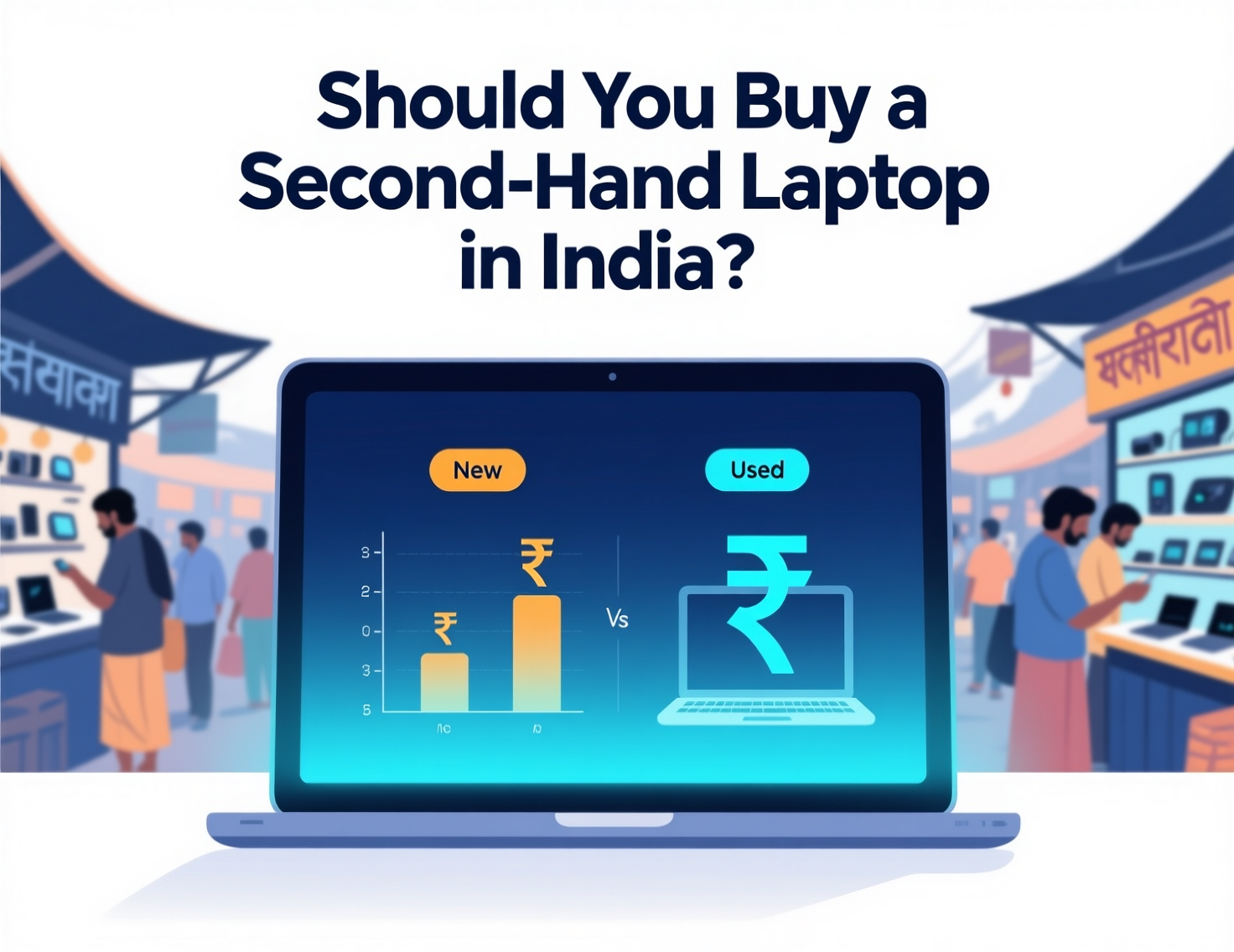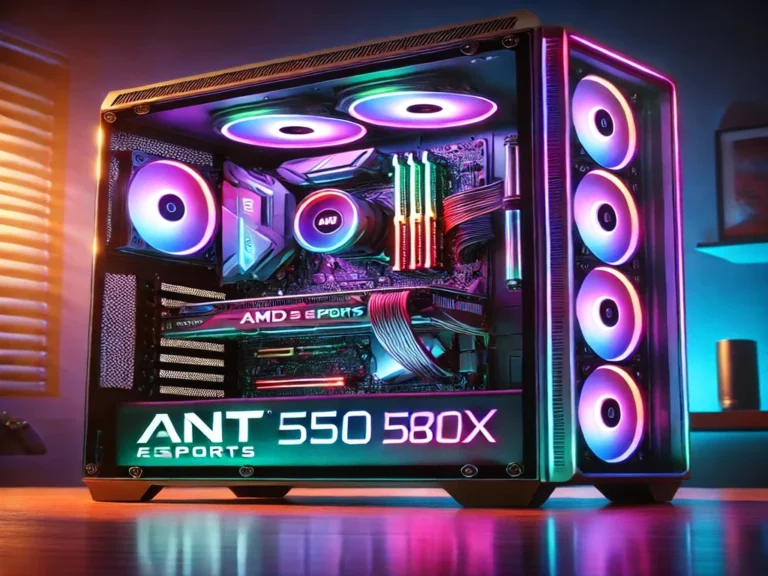Should You Buy a Second-Hand Laptop in India?
Introduction
In today’s the most common question that arises is – should you buy a new laptop or go for a second-hand one? digital age, a laptop has become a necessity for almost everyone – whether you are a student attending online classes, a professional working on projects, or even a blogger who wants to write and publish content. But when it comes to buying a laptop, the most common question that arises is – should you buy a new laptop or go for a second-hand one?
India has a huge market where used electronics, including laptops, are bought and sold every day. From OLX and Quikr to local computer shops, you will easily find a wide range of used laptops at much cheaper prices than brand-new ones. At first glance, this looks like a very attractive deal because you can get a laptop with higher specifications at almost half the price. However, the real question is – is it worth the risk?
In this article, we will discuss in detail the pros and cons of buying a second-hand laptop, when it makes sense to buy one, and when you should avoid it.
Why People Consider Buying Second-Hand Laptops
The primary reason behind choosing a second-hand laptop is budget. Not everyone can afford a brand-new laptop worth ₹40,000–₹60,000. Students, freelancers, or people looking for a backup machine often think about saving money by buying a used device.
Another reason is value for money. Many times, you can find laptops with good processors (like Intel i5 or i7), 8GB RAM, and SSD storage at a price where you would otherwise only get an entry-level new laptop with basic features. This seems like a smart move, but only if the laptop is in good working condition.
Pros of Buying a Second-Hand Laptop
Let us first look at the advantages of buying a second-hand laptop.
1. Cost-Effective
The biggest benefit is affordability. You can save 30% to 60% of the price compared to buying a new laptop. For example, a laptop that costs ₹55,000 brand new might be available second-hand for ₹25,000–₹30,000.
2. Higher Specifications at Lower Price
With a used laptop, you may be able to afford a better processor, higher RAM, and SSD storage which you might not get in the same budget for a new one. This makes multitasking smoother and increases performance.
3. Ideal for Temporary Use
If you only need a laptop for short-term use – maybe a few months or a year – buying second-hand can save you money. For example, if you are a student who needs a laptop only till graduation or someone waiting to buy a premium laptop later, a used one can act as a stop-gap solution.
4. Good as a Backup Device
Sometimes people need a second laptop as a backup. A used laptop is perfect for that role because you do not have to spend too much money on it.
Cons of Buying a Second-Hand Laptop
Now let us consider the disadvantages. These are the main reasons why many people hesitate to buy a used laptop.
1. Battery Life Issues
Old laptops usually have weak batteries. You may get only 30 minutes to 1 hour of backup instead of 3–4 hours. Replacing a battery can cost ₹2,000–₹5,000 depending on the model.
2. No Warranty or Limited Warranty
A new laptop comes with at least 1 year of manufacturer’s warranty. But most second-hand laptops do not have any warranty, or the warranty might already be expired. This means if something goes wrong, you have to pay from your pocket.
3. Hidden Problems
There is always a risk of hidden issues like overheating, damaged keyboard, faulty USB ports, or even a failing hard disk. These problems are not always visible at the time of purchase.
4. Outdated Hardware
Technology moves very fast. A laptop that was top-class five years ago may not even support the latest operating system or software today. For example, an older laptop might struggle with Windows 11 updates, or it may not support heavy software like video editing tools.
5. Security Concerns
If you buy from an untrusted source, there is always a risk that the laptop could be stolen, or it might have some hidden malware installed. This can lead to data theft or legal issues.
Things to Check Before Buying a Second-Hand Laptop
If you decide to go for a second-hand laptop, you must check certain things carefully:
-
Trusted Seller – Always buy from a reliable shop or verified seller on platforms like OLX. Avoid random sellers.
-
Configuration – Prefer at least Intel i5 (8th Gen or higher), 8GB RAM, and SSD storage for smooth performance.
-
Battery Backup – Test the laptop for at least 15–20 minutes. See how fast the battery drains.
-
Physical Condition – Check the keyboard, touchpad, display, speakers, USB ports, and camera.
-
Hard Disk/SSD Health – Use simple software to check the health of the storage drive.
-
Proof of Purchase – Always ask for the bill or invoice to ensure the laptop is not stolen.
When Should You Buy a Second-Hand Laptop?
-
If your budget is very limited and you cannot afford a new one.
-
If you need a temporary laptop for studies, light browsing, or online classes.
-
If you are buying a backup device and not your primary work machine.
-
If you get a trusted deal from someone you know personally.
When Should You Avoid a Second-Hand Laptop?
-
If you are a professional who needs a laptop for heavy work like programming, video editing, designing, or gaming.
-
If you plan to use the laptop for the next 4–5 years without problems.
-
If you are buying it for official use where security and reliability are very important.
-
If you are not confident in checking the laptop’s health and depend only on the seller’s word.
Conclusion
So, should you buy a second-hand laptop in India? The answer is – Yes, but only if you are careful and your requirements are limited.
A second-hand laptop makes sense when you want to save money, need a temporary machine, or want a backup device. But it comes with several risks like no warranty, poor battery, hidden problems, and outdated hardware.
On the other hand, if you need a reliable device for long-term use, professional work, or heavy tasks, it is always better to invest in a new laptop, even if it means stretching your budget. After all, a laptop is not just an expense, but an investment in your work and productivity.
In the end, the decision depends on your budget, purpose, and comfort with risk. If you are confident in checking the device properly and the deal looks genuine, go for it. Otherwise, it is safer to buy a new laptop for peace of mind.






